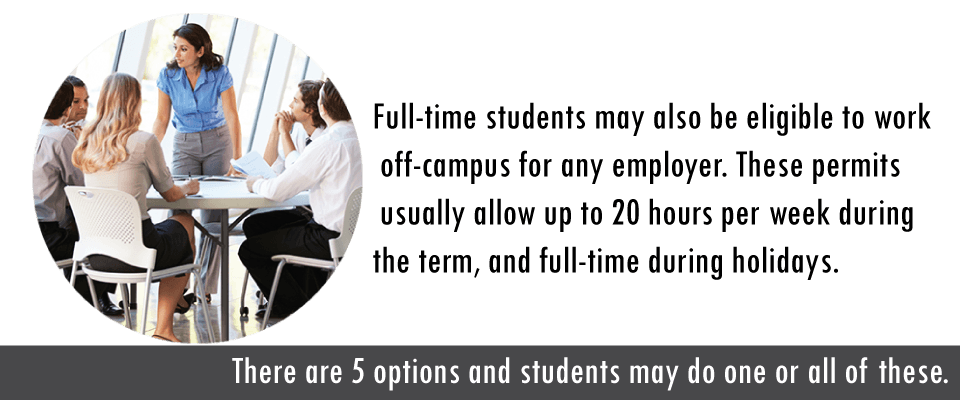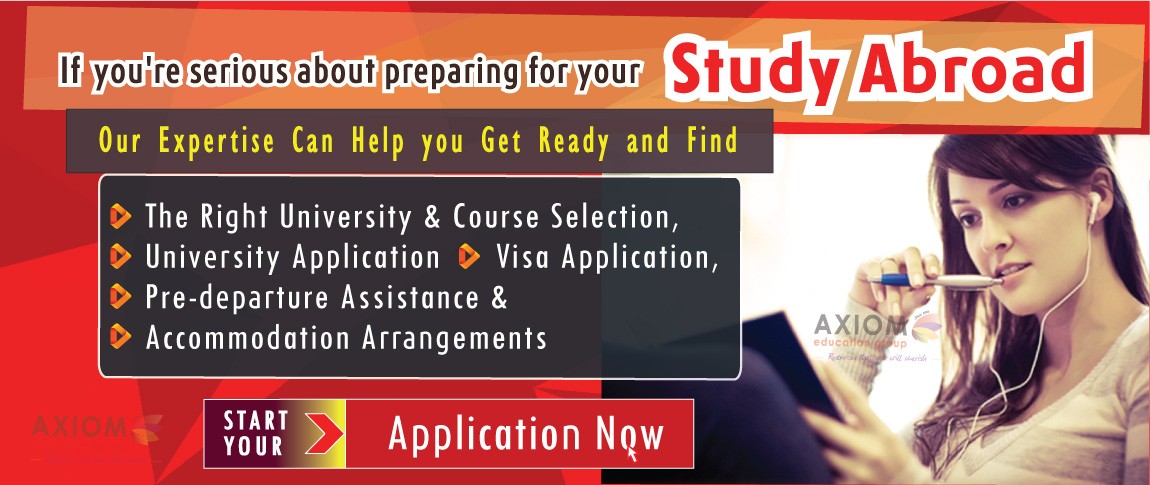
Under certain conditions, you may be able to work in Canada. If you hold a study permit, you can work on campus for the institution you are attending if it is publicly funded and grants degrees. No separate work permit is required. The employer can be the educational institution, the faculty, a student organization, a private business or a private contractor who is providing services to the campus. You can also work as a graduate, research or teaching assistant at an off-campus site that has a formal affiliation with the institution, such as a teaching hospital, clinic or research institute.

International students may work on-campus at the host institution without a work permit, if they fulfill eligibility criteria.*
You can take any kind of job: libraries, laboratories, restaurants, bookstores, gymnasiums and swimming pools, research assistance for professors, etc. Students normally earn $10/hour up to $12-15 and sometimes more.

Study permit holders in Canada may gain work experience by working off campus while completing their studies. As of June 1, 2014, you may qualify to work off campus without a work permit. If you qualify, your study permit will allow you to:
![]() work up to 20 hours per week during regular academic sessions and
work up to 20 hours per week during regular academic sessions and
![]() Work full-time during scheduled breaks, such as the winter and summer holidays or spring break.
Work full-time during scheduled breaks, such as the winter and summer holidays or spring break.
Our all universities have international student offices to guide students on how to apply for an off-campus work permit. Often salaries can be even higher than on-campus jobs. During summer recess (May to August), if students prefer to work full-time rather than take academic courses, this work permit allows them to take a job anywhere in Canada.

Some university programs require work experience. International students who want to enroll in a co-op or internship program must apply for a work permit in addition to their study permit.
If you qualify for co-op, University has a special office designed to help you get the necessary work permit, as well as to prepare your curriculum vitae, arrange job interviews and prepare you for these interviews!

The PGWPP (Post-graduation Work Permit Program) allows students who have graduated from a participating Canadian post-secondary institution to gain valuable Canadian work experience. Skilled Canadian work experience gained through the PGWPP helps graduates qualify for permanent residence in Canada through Express Entry.
A work permit under the PGWPP may be issued for the length of the study program, up to a maximum of three years. A post-graduation work permit cannot be valid for longer than the student’s study program, and the study program must be a minimum of eight months in length. For example, if you graduate from a four-year degree program, you could be eligible for a three-year work permit if you meet the criteria. If you graduate from an eight-month certificate program, you would be eligible for a work permit that is valid for no more than eight months.

If you are enrolled full time in a publicly funded post-secondary institution and you have a valid study permit, your spouse or common-law partner (person with whom you have been living in a conjugal relationship for at least 12 months) can apply for an open work permit, which means that neither an offer of employment nor a Service Canada labour market option is required. Your spouse/common-law partner’s work permit will be valid for as long as your study permit is valid.







